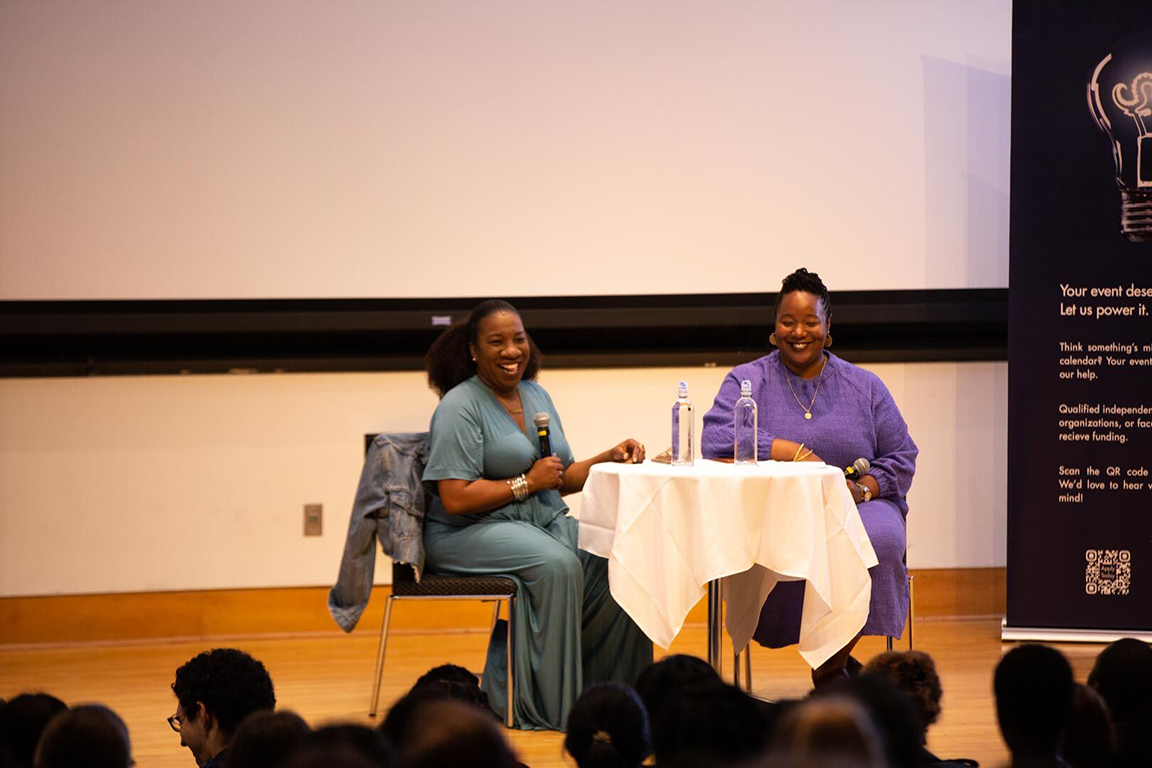
In a slew of recent events that have taken place on campus, Tarana Burke’s intimate CABx lecture series, titled “An Evening With Tarana Burke” sought to emit a wake-up call.
The event, directed by Christian Maxey, attracted a large crowd. In a question-and-answer cycle, conducted by moderator and creative artist Maori Karmael Holmes, the audience was enlightened on the roots of the passionate humanitarian behind the movement that would later send shockwaves throughout the world.
“Me Too” was originally founded in 2006 as a gateway of providing a positive and uplifting outlet for women, particularly women of color, to rebuild their lives following encounters of sexual violence. After the mass publicization of the term in 2017, sparked by a Tweet made by actress Alyssa Milano, the movement began to expand to a wider community — including individuals from all ages, orientations and walks of life. Since its horizon, “Me Too” has opened the doors for the public at large to collectively confront and engage in critical conversations about the plights of sexual violence and strategic methods to address these acts of injustice.
Burke, who has dedicated over 25 years of her life to social welfare, discussed the influences, experiences and motives that led her to share her narrative — one that would cross social boundaries and connect millions.
Within the initial appearance of “Me Too” on Facebook and Twitter, the stream had quickly expanded to engage over 12 million posts in just 24 hours alone. It would go on the include intimate peaks into the experiences of survivors, which ultimately molded into a community of allies and advocates. Although met with controversy, this mass engagement would not just be limited to the infamous unfolding that took place in the epicenter of the entertainment industry.
Reading Maya Angelou’s works at a young age resonated with Burke.
“It became a quest to figure out how your body can both possess pain and joy. Do they coexist, does one cancel out the other?” Burke remarked as being one of the first interpersonal inquires, which would later navigate her throughout the rest of her life — her commitment to providing healing spaces for survivors to learn and grow.
Almost a decade prior to the appearance of “Me Too,” Burke heard more about the community and outlet that called for participants to get involved in these internal, often covert issues. Affiliations with other projects intent on making change (such as Project Black Girl and Just Be,) along with national cases on speculations of sexual assault that hit New York in the early ’90s, allowed her to work towards the cause she was so invested in.
The night also brought cognizance to quite a few misconceptions that the movement is associated with. Despite its common conception, the social media buzzword #MeToo is a separate formation from “Me Too.”
“A hashtag is a galvanizing tool — it is a tool that movements can use, but the hashtag in and of itself is not a movement,” Burke shared with the audience.
Another common misconception that Burke cleared up is that men have been slated from the mission, often being collectively assigned as only being capable of being advocates or allies.
“Men’s first role in “Me Too” is as survivors. This is not a women’s movement — although women-informed and women-centered. The statistics are so clear — one in four girls will experience sexual violence in their lives, it’s one in six boys.”
Earlier this year, “Me Too” released a series of PSAs — short wheels named “Terry” and “Anonymous,” which shared the perspectives of violence experienced by men.
“It’s important that we have male voices so that people understand this is a movement about child sexual abuse, this is a movement about men, this is a movement about queer people, this is a movement about undocumented folks. These are the people who we represent,” Burke said.
With April having been Sexual Assault Awareness Month, perhaps now is the time to continue to engage, be proactive and inform ourselves about the underlying trends that are present within this global phenomena.
The “Me Too” coalition is currently in the works of developing new campaigns that are projected to debut later this fall.


